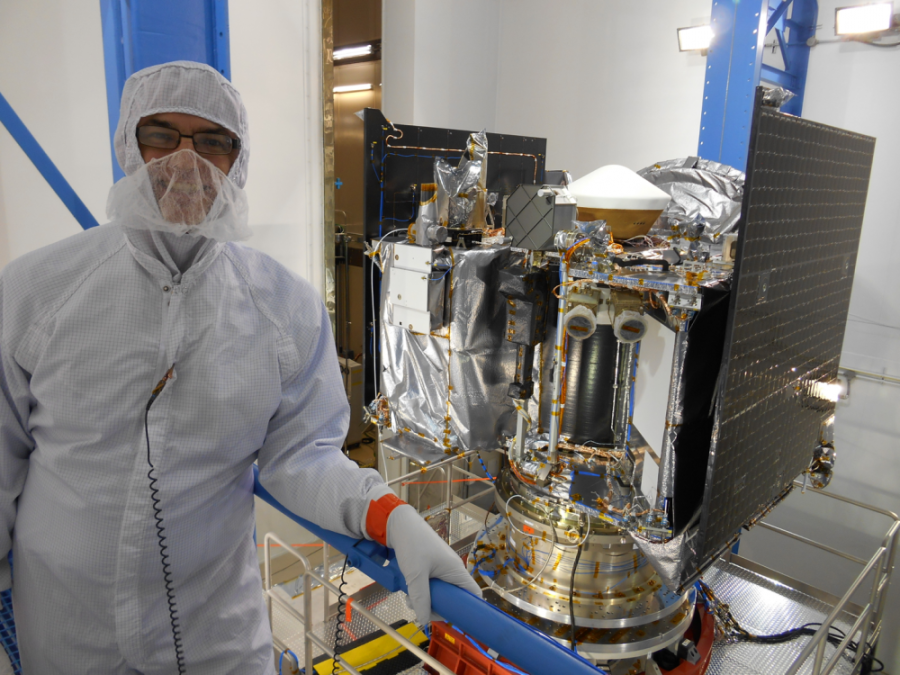In addition to ushering in a new month, June 30 is also Asteroid Day, a festival on the anniversary of the cataclysmic 1908 Russian “Tunguska Event” asteroid impact, which leveled everything within 700 meters of the crash zone. The UA community will be hosting a number of events in honor of these extraterrestrial bodies and our exploration of them.
Asteroids have been studied in earnest since the 1960s when another meteorite fell to Earth — this one leaving enough remnants behind for scientists to study. Nowadays asteroids, comets and meteors hold the attention of researchers and the public alike.
Asteroid research is specifically an important part of understanding how solar systems have developed; in a way, asteroids can be thought of as time capsules. Over time – scientists say many millions of years – small bits of matter, remnants of developed planets and stars come together to form balls of matter that eventually find a specific trajectory and float on that path forever, or until something causes them to veer away.
In tribute to Asteroid Day, six researchers from the UA’s Lunar and Planetary Laboratory agreed to take part in the filming of a documentary illustrating the importance of asteroid research around the world, which will air in a special 24-hour broadcast.
Currently, the UA-led OSIRIS-REx probe mission is at the forefront of asteroid research. Launched in 2016, OSIRIS- REx continues on its mission to collect data and samples from Bennu, an asteroid relatively close to the Earth. In fact, the asteroid intersects with Earth’s trajectory, slipping between the Earth and the Moon.
RELATED: Looking to yesterday and tomorrow with OSIRIS-REx
“We’re interested in the minerals because they’re ancient; they formed four billion years ago during the dawn of our solar system and we really want to know, ‘why is earth a habitable planet? Why are there oceans and organic molecules that may have been the seeds for biomolecules and led to the origin of life?’” said Dante Lauretta, principal investigator for NASA’s OSIRIS-REx mission and professor at the UA Lunar and Planetary Laboratory.

The materials that form asteroids are some of the oldest known to exist. Those that have fallen to earth show evidence of “star stuff”, or the matter is thought to have been present at the inception of our universe. In addition, they can help researchers understand how heavy elements found their way onto our planet. OSIRIS- REx is focused on the asteroid Bennu since it may contain some of these elements as well as metals and water.
“Its [Bennu’s] pristine nature, and the fact that it’s carbonaceous allows us to see the material in its earliest infancy of formation, which really unlocks clues as to how the solar system was formed and how compounds came together,” said Heather Enos, deputy principal investigator for the OSIRIS-REx mission.
OSIRIS- REx helped demonstrate that scientific collaboration can be the key to success. The vast array of instruments aboard were created in many different places before finding their way onto the spacecraft.
“We will be able to map all the organic signatures associated with those characteristics using our science instruments and remote sensing that allow us to get measurements of the mineral compositions and the organic volatiles, like the sugars and the salts and the amino acids, that are the building blocks of life,” Enos said.
RELATED: UA researcher observes smallest asteroid
Both Lauretta and Enos emphasized the need to communicate to the public the compelling need for scientific understanding and research. Asteroid research is not just limited to the composition of the asteroids themselves, but also how they could be a potential source of rocket fuel, how close they come to Earth and how the world would be affected by an impact event. In the future, asteroids may become a source of minerals and other organic materials that could be mined from both the surface and the core.
Throughout 2017, more than two hundred countries have planned roughly seven hundred events to commemorate the day. The UA has several events planned to showcase the research being done at the Lunar and Planetary Laboratory, and the Flandrau Planetarium will also be hosting special events into the weekend.
Follow Rebekah Ulmer on Twitter.









